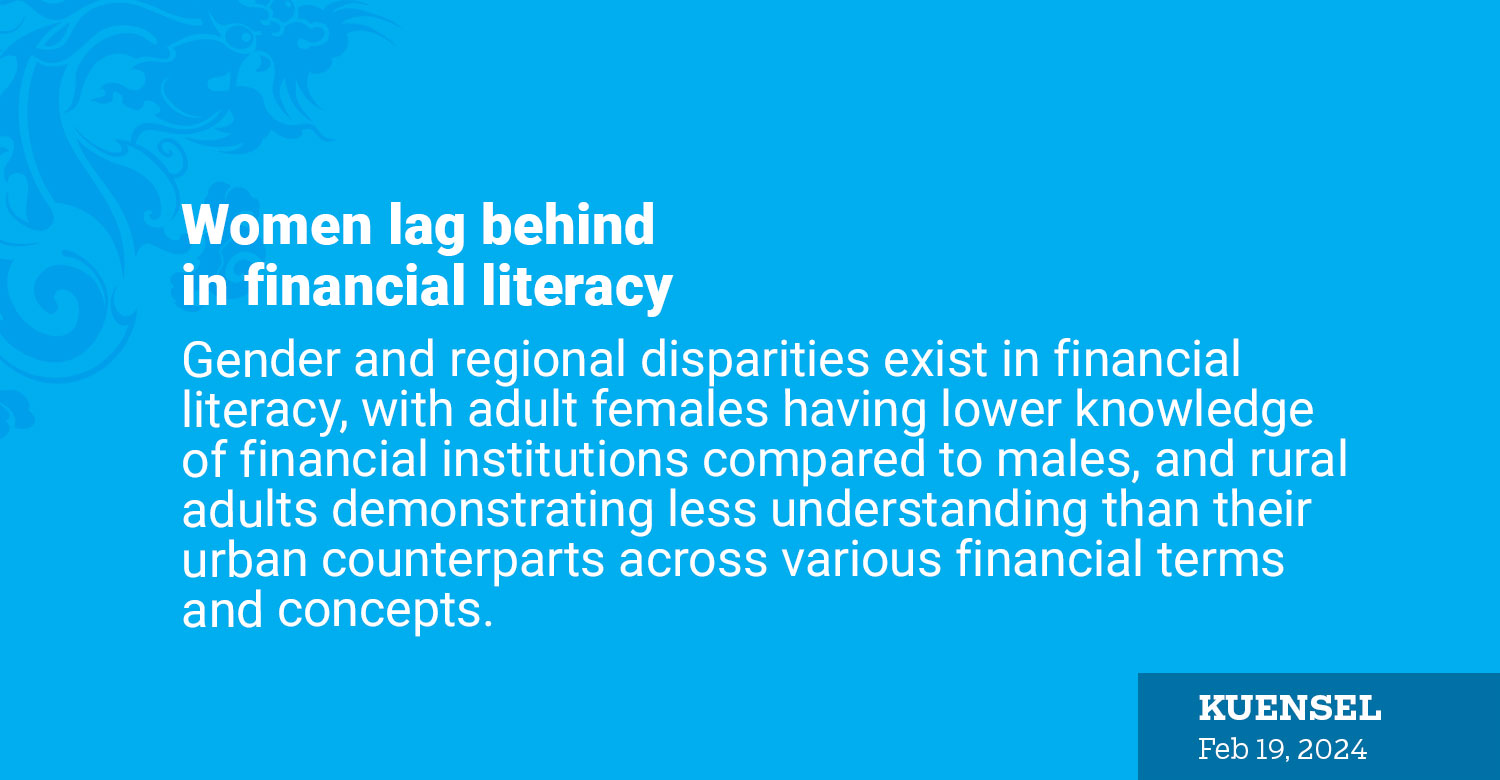A Deep Dive into Financial Literacy Disparities
Recent studies highlight significant disparities in financial literacy across gender and geography, underscoring a pressing need for targeted educational initiatives. The Royal Monetary Authority’s comprehensive survey conducted in 2022 revealed that adult females and rural residents in Bhutan possess markedly lower financial understanding compared to their male and urban counterparts. This gap manifests in varying degrees of familiarity with financial concepts and institutions, such as stock exchanges and microfinance, which are crucial for making informed financial decisions.
Financial Literacy Among Women: A Closer Look
Women, particularly in rural areas, exhibit lower levels of financial literacy, with a significant knowledge gap in understanding the roles of financial entities like stock exchanges and central banks. For instance, only about 91.2% of women are familiar with stock exchanges compared to 88.4% of men. This disparity not only affects their financial decision-making but also limits their access to financial services, impacting their economic empowerment and independence. Enhanced financial education for women could bridge this gap, fostering a more inclusive financial landscape.
Enhancing Financial Literacy in Rural Areas
The disparity is even more pronounced when comparing rural and urban knowledge levels. Rural adults show a substantial lack of understanding about key financial institutions, with a “very low” comprehension level significantly higher than their urban counterparts. This rural-urban divide is evident in the lower adoption rates of financial services and a lesser degree of engagement with modern financial tools such as mobile banking and electronic money. Addressing these disparities through comprehensive financial literacy programs could significantly impact the overall economic stability and growth of these communities.
These findings not only highlight the need for more robust financial literacy initiatives tailored to the specific needs of women and rural populations but also point to the broader implications of these disparities on societal well-being and economic development. As we move forward, it is crucial to integrate these insights into policy making and community programs to ensure that all citizens are equipped with the knowledge and tools necessary to navigate today’s complex financial landscapes effectively.

